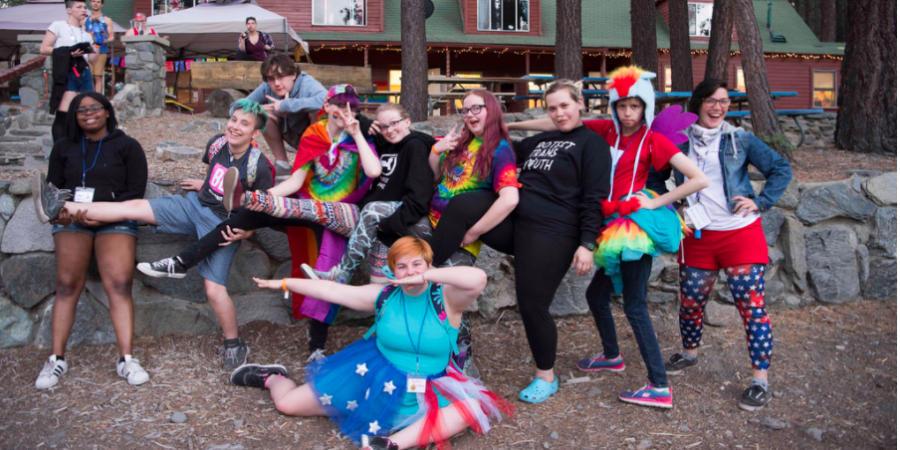Growing up as a young Jewish girl in a predominantly Christian area, Jessica Ryan Weissbuch was used to feeling like “the other.” Getting involved with activism and a youth leadership program helped give her a sense of belonging.
Weissbuch came out as queer at 19, and after a career in television production, she went back to school to become a therapist and work with LGBTQIA youth. She landed a job working at the LA LGBT Center, where she met her now-wife, Kayla, who volunteered there.
Kayla had gone to camp throughout her formative years and dreamed one day of being a camp director. One day, the two women came up with an idea that would merge together their greatest passions: a leadership summer camp for LGBTQ youth.
Through research and hard work, they turned this idea into a reality with Camp Brave Trails, which debuted in California the summer of 2015 for youth aged 12 to 19. During the first three years, the couple ran it on a volunteer basis. But about a year ago, the two women were able to make it their full-time jobs, allowing them to expand the camp’s offerings.
In addition to several weeks of camp in California, they now have a week in Maryland, plus a short family camp for LGBTQ parents and their families. Ryan Weissbuch, 37, and her wife also now offer year-round events in the L.A. area to campers, including drag workshops and mentorship opportunities. Later this month, on April 22, they’re hosting their fourth annual benefit soiree, Camp Out, to raise money to help operate the camp and give scholarships to campers.
The couple also does speaking gigs and consults with other camps to help them learn how to be more inclusive. “We’re very liberal and radical with our inclusion, but we also understand that not every camp is equipped to do that, so we meet them where they’re at and guide them with best practices,” Ryan Weissbuch says.
Read on for our interview to learn why Ryan Weissbuch and her wife saw a critical need for an LGBTQIA youth leadership camp, how Brave Trails came to be, and why it’s so beneficial for these youth to have safe spaces like Brave Trails.
Profiles in Pride: Tell us a little about you and your wife and how you two came up with the idea for Brave Trails.
Jessica Ryan Weissbuch: I grew up in the suburbs of Chicago in an area that was pretty much straight, white, and middle-class. Then in high school, I became a member of Operation Snowball; I don’t know if it’s still around. It was a teen youth group that was all about drug and alcohol prevention. I was really really involved in that, and I became the team leader for it. It was an amazing, formative part of my childhood. So we’d not only do things for the community, but we’d also have these weekend lock-in events; it was kind of like mini-camps. We’d have volunteers that would come in and do workshops about leadership and about prevention and all that good stuff, and it really shaped who I was and set me up to go off to college and to do my thing in the world. That was really where my social activism and love for youth leadership started.
Cut to me being out in L.A.; I worked in the film industry for a while in TV production. I loved it, it was great, but I wanted a little bit more. I went back to grad school and got my masters in clinical psychology; I’m a licensed therapist. When I entered school, what I wanted to do was work with queer youth. I didn’t know what that was going to look like or where it would lead me, but I knew that’s what I wanted to do. After I graduated, I was very fortunate to get a position at the local LGBT center here in L.A. working with queer youth, so it was exactly what I wanted to be doing.
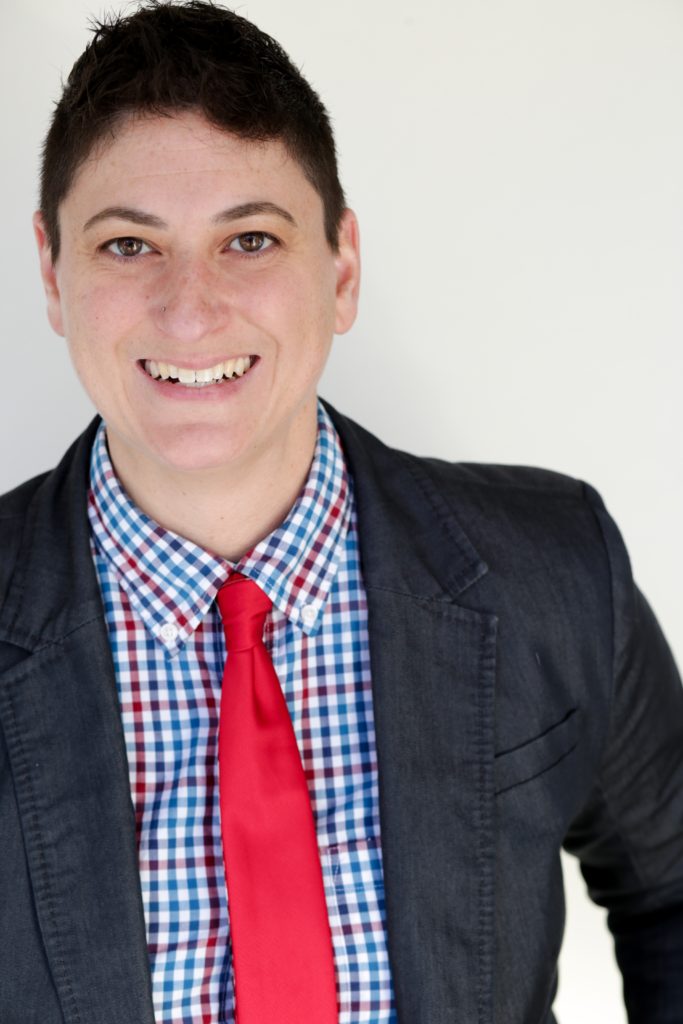
Then my now-wife started volunteering there, and so we met through the work and the passion that we do. We really work well together and we obviously got married. One day we were driving home from the movies, and we were talking about what we wanted to do in this world. Because both of us really wanted to have our own nonprofit and do our own thing, but we weren’t really sure what that was going to look like.
My wife, Kayla, grew up in summer camps. She was really fortunate; she was able to go to this camp that was for underserved youth and foster care kids. She grew up with just her and her mom. Her mom was pretty young when she had her, so she had this great opportunity to go to camp for $75 for the summer, and that’s unheard of. Camp is traditionally pretty expensive.
So she got this amazing experience, she went all throughout high school, and was a counselor in training. She’d walk by director’s house and be like, “that’s what I want to do,” and after school, it was her pipe dream to be a camp director. We were able to really talk about it, and from the loves our life, with my youth group and leadership-driven youth work, and her love of summer camp, we were like, “What if we do an LGBTQ leadership summer camp? What would that look like?”
PIP: How did you go from an idea to actually launching a camp?
JRW: We basically shopped the idea around our friends and were like, “What do you think of this?” Everybody was really, really responsive to it and thought it was a great idea. We just started to move forward. We were very fortunate; we found the American Camp Association, which is the nonprofit that puts out standards for organized camping and professional camps. We got in with them and they really helped us along, like how to create a camp, what that looks like.
Then we decided to have a spaghetti dinner in our backyard, with homemade spaghetti from the kitchen that we just ran outside to raise money for our nonprofit status. We were able to raise enough money through that first spaghetti dinner. We worked with this awesome organization called Public Council that paired us up with a lawyer that did pro bono work for us and stepped us through the whole process of getting our tax-exempt and nonprofit status, which was amazing. So we’ve had a lot of help along the way. That’s the background of why I think for us it’s really, really important to be able to provide that space in the world for young queer people to come and really excel as leaders.
There are a lot of places where you can get therapy, and there are a lot of places where you can get support. But there’s not a lot of those places where you can be your true self and not have to worry about your queerness, but really focus on the leadership aspect and what that intersectionality looks like.
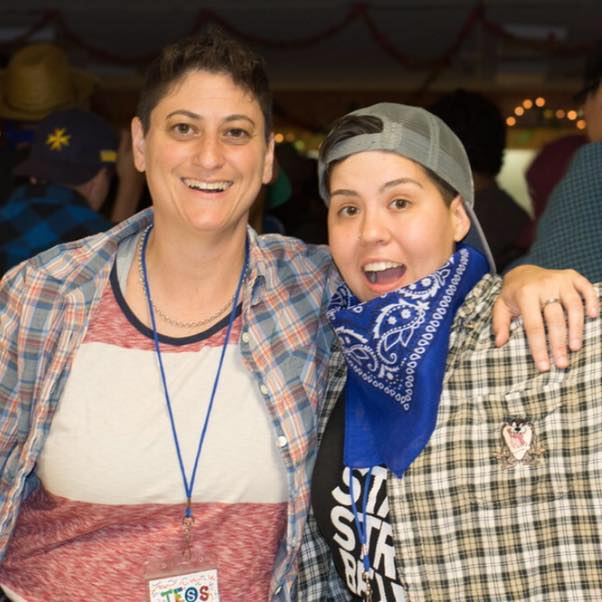
PIP: In the context of Brave Trails, what does leadership means to you?
JRW: For us, leadership is really holistic. We always say we’re part traditional summer camp, which is archery, hiking, swimming, theater, and arts and crafts. But then we’re part leadership institute. We bring folks up from the community to come and do leadership workshops every single day for the campers. They have four or five different workshops to pick from every day. Those range from the hard skills of leadership like public speaking to how to write a resume, how to tell your story, how to create an LGBTQ group at your high school or middle school — those harder skills.
But we also know that to be a really strong leader, you need to be well-rounded and have all those other skills. So we do workshops on identity, we do mindfulness, we have yoga workshops. We have self-esteem workshops. We have how do you deal with your anxiety and how do you move forward through it. It’s a huge component of what we do; we see leadership as anything that betters the person so they can go back into their communities and take what they’ve learned and apply it.
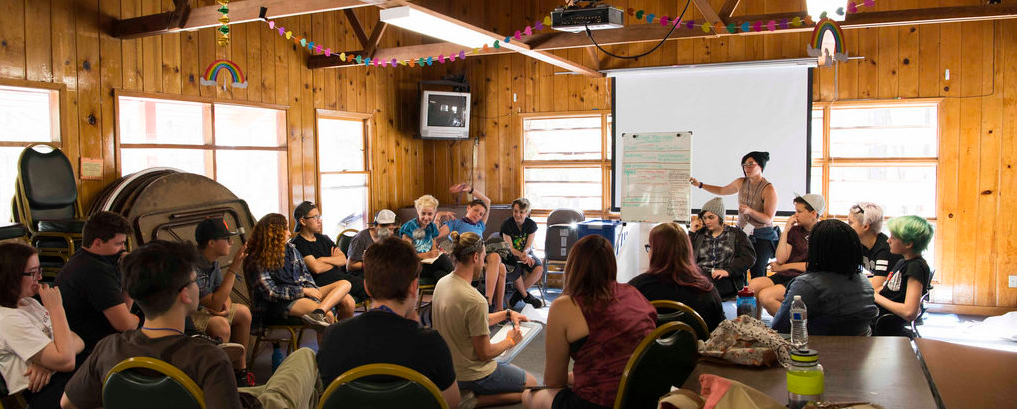
PIP: I know you started in California, but I saw that you’re now offering a week in Maryland.
JRW: Yeah, that’s new. We started in 2015 with one week of camp and we thought if we got 15 campers, that would be great. And we ended up with 43 campers that first summer, which was amazing! We expanded to two weeks our second summer and we had about 96 campers. Last summer we did three weeks; we did a one-week session and a two-week session and had about 120 campers.
This summer because I’m full-time, and because Kayla is full-time now too, we’re fortunate enough to have expanded to a full six weeks of camp this summer. Five of those weeks are in Southern California, and one week is in Maryland. We were really fortunate; we were speaking at a conference, because we do a lot of speaking and education to the camp world. So we were speaking and a camp in Maryland approached us and said, “Have you ever thought about doing a satellite camp?” It’s something we’ve always wanted to do, because we want to change the narrative of camp and bring camp to people who don’t get it. It’s always been our goal to do satellite sites. It was just presented to us and it’s a great partnership with this camp. It’s called Camp Airy and Louise in Maryland. They’re really supporting us and we’re running our program out of their space.
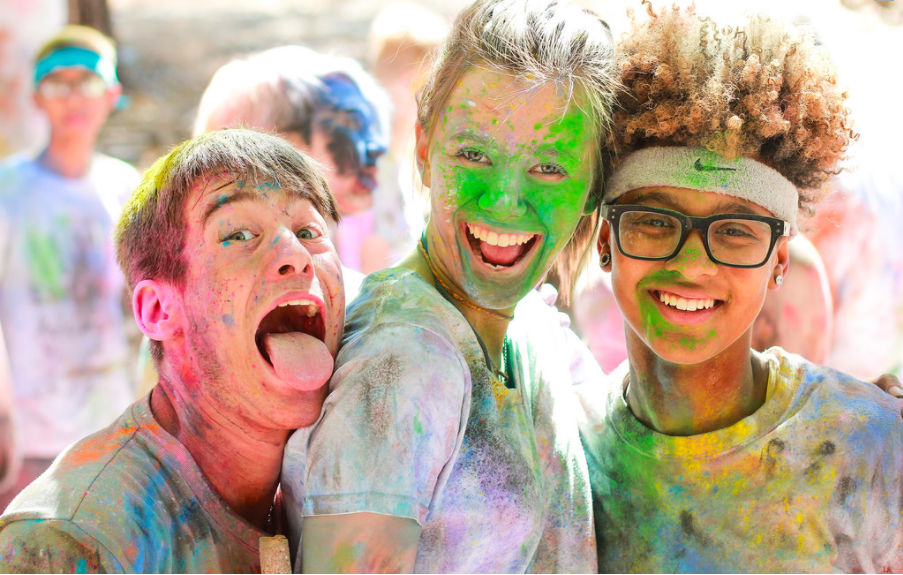
PIP: In California, do you also borrow space from another camp?
JRW: We do, we’re renting our space. It’s called CalPac, it’s a Methodist-based camp and they’re absolutely amazing and welcoming to us. We’re able to rent the space for almost the whole summer.
PIP: I saw you’re offering a family camp; can you tell us about that and more about your youth programs?
JRW: Yes, family camp is new this year, which is really exciting. From April 13 through 15, we’re having our first ever family camp that’s for LGBTQ parents and their families. That’s going to be a lot of fun; we’ll have people of all ages, which is new to us and is exciting. We’re going to have different activities for all the different ages, and it’ll be a lot of fun.
Our youth program obviously is for queer kids. For that, we have tons of different programming at camp. They range from drag workshops to theater to improv. We have low ropes and we do a variety show, which is awesome every year, and we’ve had a drag show. We’ve done lip syncing before, and last year we had live-action Mario Kart and a carnival.
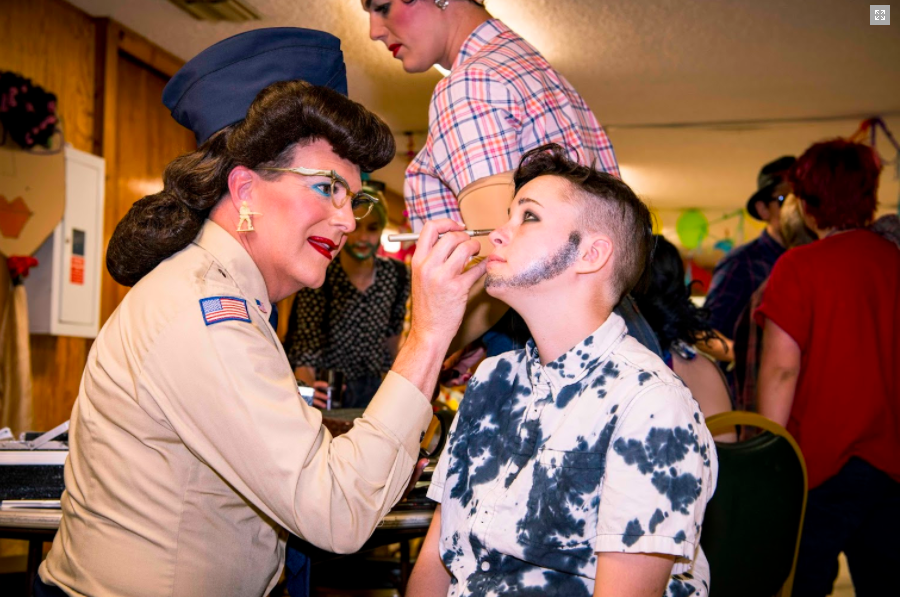
We also do some year-round programming for local campers in the L.A. area. We’re just in the midst of our first eight-week-long improv program, and it’s gonna end with a big improv performance, which will be so much fun. We’re planning on having an eight-week drag program as well after our camp concludes this summer.
Then we’re starting a mentor program as well. It’s a mentor program specifically for our campers and our staff, because we do have campers from all over the country and all over the world. We have a lot of folks from Texas and Oklahoma. Their parents may be fully supportive, but they might not have a community of friends or peers or anything like that, or role models.
What we’re starting is this mentor program where we match up our existing staff and our existing campers that want to be in the mentor program and they work together to not only have the mentorship relationship, but we always stay on mission with the leadership, so their goal would be to work together and produce at least one leadership project in the year. It really helps them not only think about the leadership component, but also daily life, like if they don’t have social support system at home, how do they get through that and where do they turn. Just an all-around mentor.
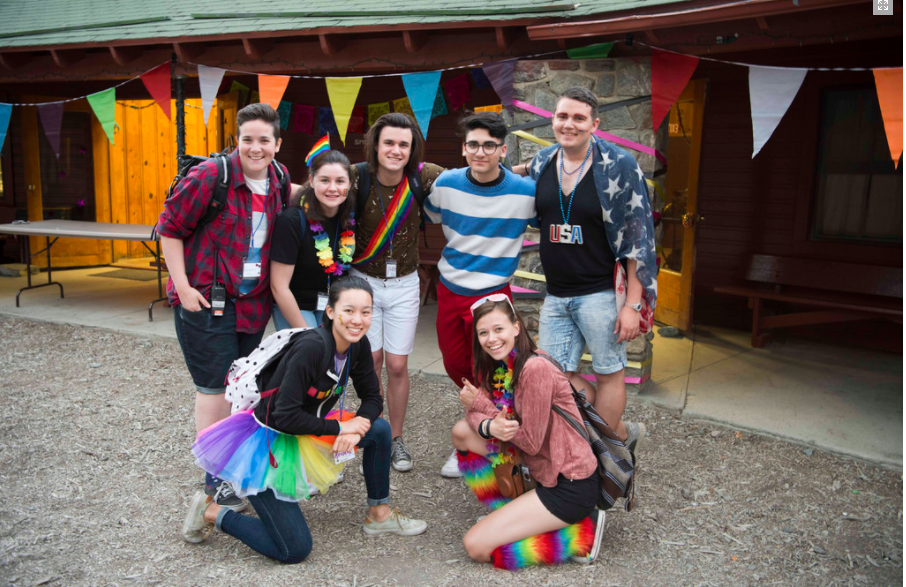
PIP: What was your experience growing up queer; did you get the support you needed? Does that play a role in why this is so important to you?
JRW: I wasn’t really a queer youth in the sense of these folks. These youth are coming out at the age of 12. I came out at the age of 19, which was much, much older. But for me, it kind of ties into my intersectionality. I was saying earlier, I grew up primarily in a white, suburb of Chicago that was very Christian, and my family is Jewish. For me, I always felt a little bit different.
I had this one experience on the last day of eighth grade. There was a party with all the popular kids across town. We were from the Midwest and we toilet paper each other’s houses often, so at one in the morning the doorbell rang and my mom and I got up. We were fully thinking the party just came and TP’d the house. We opened the door and there was no toilet paper, we were like, “What’s going on?” We walked out of the house and down the driveway, and there was a wooden swastika at the end of the driveway. For me, it was horrible. It was crushing to feel that “other.” To have it manifest that way.
From that, I feel like I had the choice to either get really pissed off and go one direction, or do what I did, which was, it motivated me. It motivated me to be an activist; it motivated me to step up for other people. I never wanted anybody else to feel like I felt when I saw that. So from a very young age I just took on that role of being an activist for “the other.”
My parents were super supportive through all of that, very loving and amazing. From that point, I had a friend in high school who came out who got kicked out of his house. My parents were always there to support him. I’ve always seen that happen throughout my life. So when I came out, my family was amazing and super supportive, so it wasn’t an issue for me necessarily, but I witnessed it and experienced what that “other” feels throughout my life, so yes, it absolutely contributed to me really helping youth find their own find their voices.
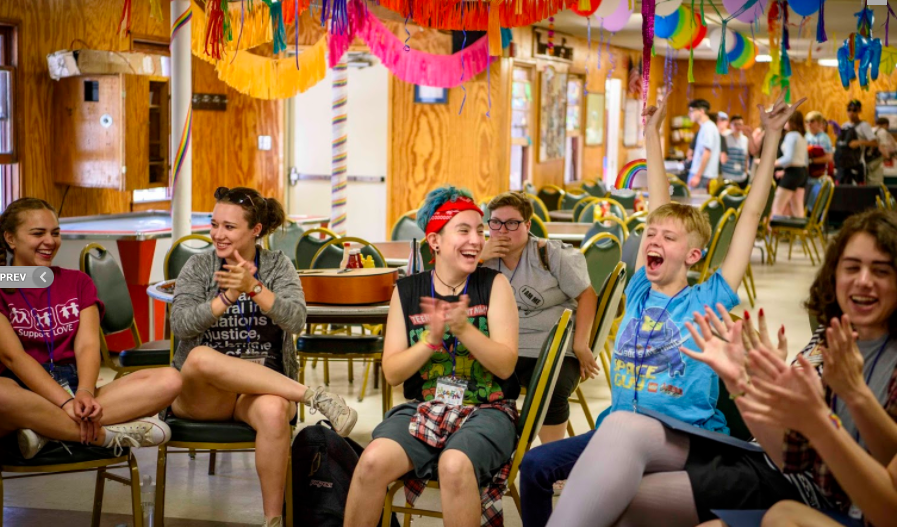
PIP: Can you talk about the importance of having community and support like Brave Trails for LGBTQ youth?
JRW: There’s a researcher out there named Bonnie Benard, who does a lot of research on resilience and what that is. She states that if a youth has one positive adult support in their life and five positive peer connections, it makes them more resilient or it helps them become more resilient. That’s what our goal really is: to be able to help them not only form those relationships at camp, but also to carry them out of camp and have people they can rely on. That’s also why we want to do the mentor program, as well: we want them to have that positive person that’s maybe not their parent.
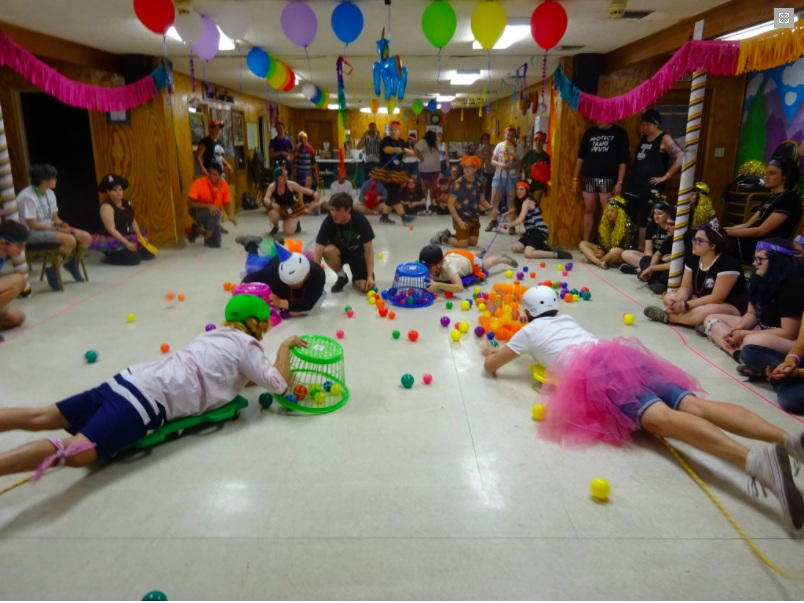
PIP: Tell us about your upcoming benefit soiree, Camp Out!
JRW: We have our annual Camp Out, which is happening April 22. We’re super excited about it, it’ll be carnival themed with really fun carnival games, some performances, and we’ll have some youth campers there who will perform a song. It’s gonna be so much fun.
Since we’re a nonprofit, we’re really trying to change the narrative of camp. Camp traditionally is a pretty privileged space costing anywhere between $2,500 and $3,000 for a week or two of camp. We really want to be able to provide camp to whoever wants to be there and is willing to want to be a leader and grow. For us, it’s really important that we don’t deny anybody because they can’t pay for camp, so we give away about $40,000 worth of scholarships every summer. Camp Out helps us raise money to give out those scholarships, to have operating costs — it’s our fundraiser to empower the youth.
Learn more about Camp Brave Trails or make a donation on their website.

